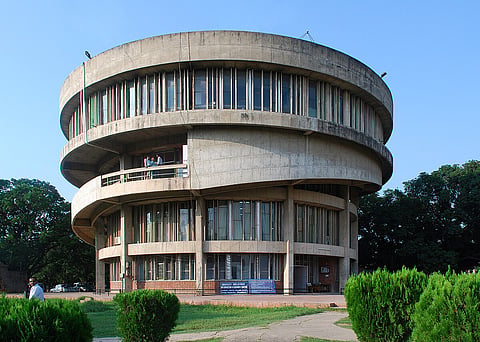

The Centre’s decision to roll back its controversial plan to restructure Panjab University’s governing bodies has brought relief to the campus, but the uncertainty over the University’s long-delayed Senate elections continues. With the final withdrawal order issued late on November 7, the immediate crisis may be over, yet the question of when the University will regain its elected leadership remains unanswered.
The row began on October 28, when the Ministry of Education issued a notification proposing major changes to how the University is governed. The proposal sought to reduce the number of elected members in the Senate, introduce more government-nominated representatives, and abolish the system allowing Panjab University graduates to vote in Senate elections.
The Syndicate, which serves as the University’s executive and administrative body, was also to be reconstituted with more nominated and ex-officio members, reducing the role of those elected from within the Senate. The plan was seen as an attempt to shift Panjab University from a democratic, election-based model to a government-nominated structure, raising fears about loss of autonomy.
The move sparked widespread protests from teachers, students, alumni and political leaders across Punjab. Faculty associations held meetings and demonstrations within the campus, calling the proposal an attack on the University’s heritage of participatory governance. The issue also took a political turn, with Punjab leaders across parties demanding that the Centre withdraw the changes.
Amid the growing backlash, the Centre issued two notifications on November 5, the first order stating it takes back the October 28 orders, however, hours later, it issued another notification saying the restructuring has been put on hold until further orders. It was only on the night of November 7 that the Ministry of Education formally withdrew the October 28 notification, ending nearly ten days of uncertainty and strong resistance from the campus.
While the rollback has been welcomed, many within the University say the real issue, the absence of an elected Senate since 2020, still needs urgent attention. The Senate’s four-year term expired five years ago, and elections have been repeatedly postponed, leaving the University’s top decision-making bodies functioning under interim arrangements.
“The rollback is a welcome relief, but we can’t call it a complete victory yet,” said a senior faculty member. “The University needs its elected Senate back. Without that, its democratic character remains incomplete.”
Established in 1882, Panjab University has one of the oldest democratic governance systems in Indian higher education. The Senate frames key policies on academics, finance, and development, while the Syndicate, elected from within the Senate, serves as the executive arm handling daily administration.
"With the Centre’s withdrawal now official, the focus shifts from confrontation to correction. We hope that the government and the University administration will soon announce the long-pending Senate elections, restoring the spirit of shared governance that has guided Panjab University for over a century", said student leaders of PU.